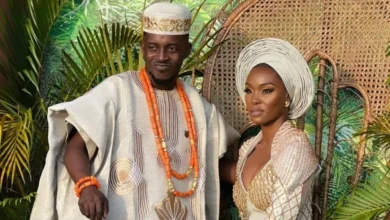Dangote Refinery, Oil Workers’ Unions and Nigeria’s Struggle for Accountability

Introduction: The Gospel According to the Beneficiaries
In Nigeria, truth rarely travels first class; it is usually overtaken by sponsored narratives.
The latest is the sermon by Okey Ibekwe, titled “Allegations of Sidelining and Marginalizing Igbos in Comptroller General of Customs Tenure Extension: Setting the Record Straight.”
But rather than setting the record straight, the article set the record for the longest stretch of spin ever written in defense of an institutional “deal.”
Its closing line — “The Customs under CGC Adeniyi has Nd’Igbo the best deal ever” — unmasks the intent: this was not a defense of merit; it was a declaration of trade — the journalism of “what’s in it for me?” masquerading as analysis.
The author, Bolaji O. Akinyemi
1. The Deal: What Exactly Was Sold?
Since I have never met or know Okey Ibeke, his identity is of essence. Who is Okey Ibeke?
That request from A.I provided a single name as “Okey Ibeke”, how he is the only one so named from the South East and a country of over 200 million people is a mystery beyond the scope of this article and I hope their won’t be the need to unravel it.
A.I have this to say about Okey Ibeke; “it appears to be a multifaceted individual with various pursuits, a *Customs and Tax Expert*: Okey Ibeke is a customs and tax expert who has shared insights on the duties of the Nigeria Customs Service, highlighting that their role extends beyond revenue collection to include highly technical operations.
Let’s go back to where Mr. Ibeke ended — “The Customs under CGC Adeniyi has Nd’Igbo the best deal ever.”
What deal?
Who negotiated it?
And who are the beneficiaries?
Is leadership now a bazaar where ethnic groups are compensated for loyalty, silence, or flattery?
When a journalist or analyst starts using the language of deals instead of principles, it signals the death of institutional integrity and the birth of transactional governance.
Customs is not a marketplace for ethnic favour. It is majorly a revenue institution entrusted with that national duty. On the other hand, it’s a paramilitary agency, the only one with the mandate to directly protect the economy from smuggling— not an ethnic altar where tribal offerings are shared to appease anger.
And if Okey Ibeke calls Adeniyi’s leadership a “deal” for Ndigbo, then he has unknowingly confessed that the Nigerian Customs Service under Adeniyi has become a transactional service, not a transformational one.
2. The Dealers: When Journalists Become Brokers
Every corrupt system needs two things to thrive — a dealer in power and a dealer in pen.
The first writes memos; the second writes stories.
The first signs documents; the second signs off narratives.
Together, they trade truth for access and journalism for justification.
It is fair to ask:
What is Okey Ibeke’s cut in the Ndigbo deal?
Was it access? Visibility? Or a future PR contract disguised as patriotism?
When journalists become courtiers of power instead of custodians of truth, the people become victims of information laundering.
Nigeria’s decay is not just administrative; it is editorial — a system where the pen no longer pierces injustice, it polishes it.
3. The Ethnic Diversion: Turning Fairness into Favour
Okey Ibeke’s entire argument rests on a false premise — that Adeniyi’s tenure extension, and his leadership, have been a favour to the Igbo nation.
Let’s be clear: Equity is not a gift. It is a right!
When fairness becomes something to thank your oppressor for, you are no longer a citizen; you are a client in a corrupt republic.
The Igbos do not need “a deal” in Customs.
They need a system where competence, not connection; merit, not manipulation, determines progress.
The celebration of crumbs from a table built on patronage is an insult to the Igbo intellect, industry, and integrity.
4. The Tinubu–Adeniyi Symbiosis: Reform or Retention?
When President Tinubu extended the tenure of Comptroller-General Adeniyi, Nigerians were told it was to “consolidate reforms.”
But real reform begins with renewal, not repetition.
Adeniyi’s “Customs Modernisation Project,” or B’Odogwu software, may sound glamorous, but modernization without moralization is mechanized corruption — efficient in collection, selective in accountability.
If after decades of Customs automation, Nigeria still bleeds from under-declaration, smuggling syndicates, and revenue leakages, then the problem is not software — it is soft conscience.
Let us be honest: this extension was not about reform; it was about relationship.
And Okey Ibeke’s article is a thank-you note disguised as journalism — a subtle down payment in the ongoing trade between media and power.
5. Ndigbo Deserve Justice, Not “Deals”
The Igbos, like every Nigerian ethnic group, deserve inclusion, not indulgence.
Justice is not a political favour; it is a constitutional guarantee.
What Okey Ibeke calls “the best deal ever” is simply the bare minimum any fair-minded administration should offer — equity in appointment, fairness in posting, and respect in retirement.
To hail this as generosity is to normalize marginalization.
To praise it as progress is to participate in our own oppression.
When you are given what was always yours by right, and someone tells you it’s a deal, you must ask:
“Who sold my rights, and at what price?”
6. The Nigerian Customs Service: From Reform to Transaction
The tragedy of the Nigeria Customs Service today is not in the uniform; it is in the underbelly of its operations.
A service captured by a cartel of contractors and consultants.
A leadership obsessed with image rather than integrity.
A reform agenda that looks more like a revenue syndicate than a restructuring effort.
When Customs becomes transactional, the nation becomes vulnerable.
Revenue reforms become rent-seeking, and modernization becomes monetization.
Okey Ibeke’s praise-piece only confirms it — Customs has become a deal-making arena, and every ethnic justification is a receipt for silence.
7. The Way Forward: From Transaction to Transformation
If President Tinubu truly desires a reformed Customs Service, he must dismantle this culture of “deals.”
Reform must begin with accountability, not with public relations campaigns.
Publish Customs revenue, exemptions, and leakages quarterly.
Audit the Trade Modernisation Project for ownership transparency.
Stop the tenure-extension culture that rewards loyalty over legality.
Protect career officers from ethnic manipulation.
And above all, restore Customs to its founding mandate — a guardian of trade, not a trader in power.
Until then, the “deal and the dealers” will continue to prosper, while Nigeria pays the price.
Conclusion: Nigeria Cannot Be Reformed by Transactions
The problem with Nigeria is not lack of progress; it is the commercialization of conscience.
A system that rewards spin over service, loyalty over law, and deals over duty, cannot be reformed by press releases or praise-writers.
The Nigeria Customs Service must decide:
Will it be a service of nation-builders or deal-brokers?
Will it serve the republic or the cartel?
Okey Ibeke may have written his deal. But Nigerians must write their truth.
Because when propaganda becomes policy, silence becomes complicity.
Dr. Bolaji O. Akinyemi is an Apostle and Nation Builder. He’s also President Voice of His Word Ministries and Convener Apostolic Round Table. BoT Chairman, Project Victory Call Initiative, AKA PVC Naija. He is a strategic Communicator and the C.E.O, Masterbuilder Communications.
Post Views: 183




